What Is THC Or Tetrahydrocannabinol?
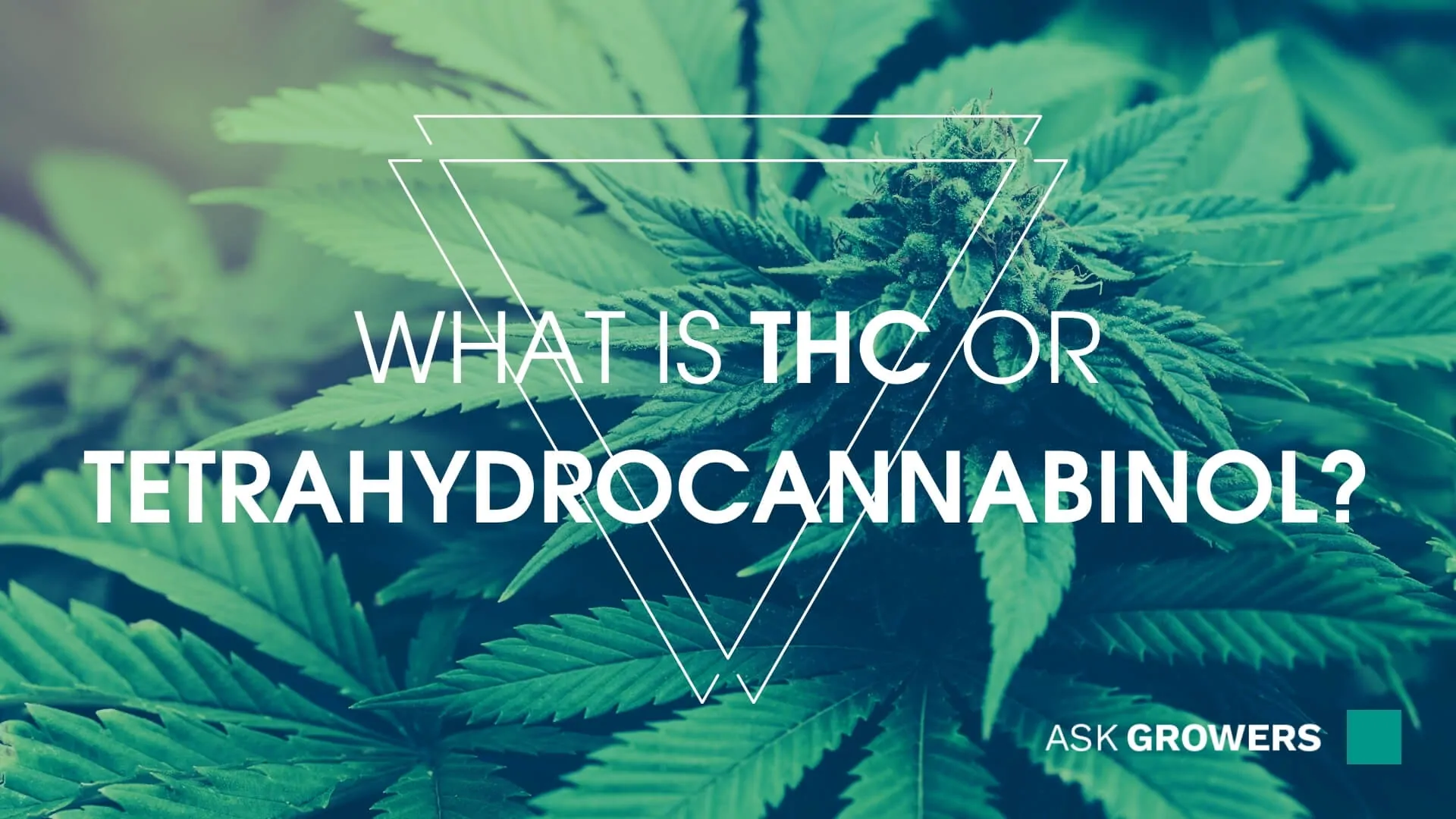
| This article is not intended to be used as a medical guide for self-medication. If you need professional help, visit your GP! |
THC is the word we all are hearing more and more. Though the percentage of people who know what this abbreviation stands for is not as small as a few decades ago, a lot of adults still think that it is “something to do with marijuana.”
Fortunately, it is no rocket science. In short, THC stands for tetrahydrocannabinol – one of the cannabinoids, which are compounds in cannabis. Unlike its “closest relative”, CBD, tetrahydrocannabinol is a psychoactive compound. Hence, it gets people high.
If you were looking for the definition of THC just to find out what it is and/or understand what people who surround you talking about, this information might be enough for you. However, if you want to know more about this unique compound and its properties to use this knowledge when consuming marijuana, keep reading. Below, you will find a lot of useful information and answers to the following questions:
- What are cannabinoids and why THC is a special cannabinoid? Why is it associated with high?
- How was it discovered? Do scientists know everything about it?
- What is the endocannabinoid system? What are endocannabinoids?
- What does THC do? What are the advantages of using THC and its downsides? Can it be used for medical purposes?
- How to consume THC? What are the most popular THC products?
- How much THC is in weed? How long does THC stay in blood?
We believe that a deep understanding of all these qualities, processes, properties, and nuances is of great practical use for newbies, as well for experienced consumers, so let us get started.
Read Also: What Are Cannabinoids, Their Types, and Effects?
What Is THC and What Makes It a Special Cannabinoid?
Someone who has never heard about cannabinoids will hardly understand anything about THC after he reads the dictionary definition, and that is normal. You just need to understand what exactly does the word ‘cannabinoids’ means.
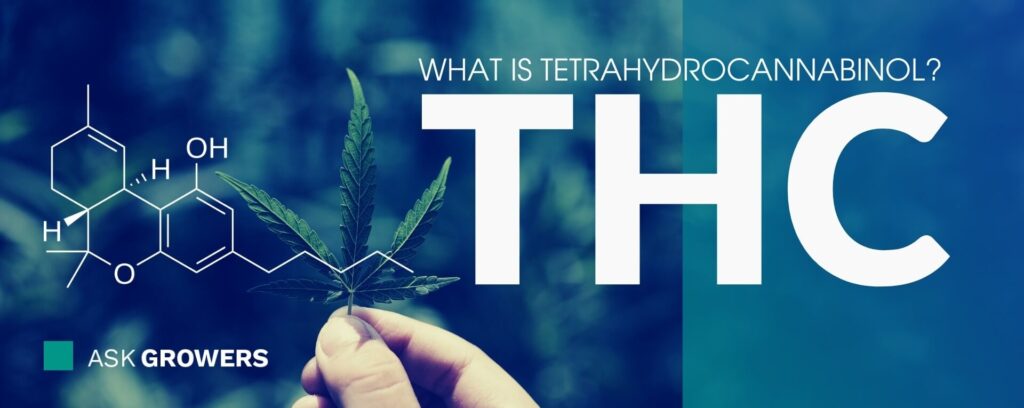
They are chemical compounds that interact with certain receptors in the human brain and body and have a certain effect on them. Currently, it is considered that cannabis contains over 80 cannabinoids, but some scientists and researchers suggest that there are over 100 cannabinoids people just have discovered yet.
Why does this plant produce them? Cannabinoids are the intermediate end products of metabolism, i.e., they have no primary role in the organism’s development. Though scientists do not know what impact they really have on the plant, most researchers agree that these metabolites are likely to perform the functions of the immune system, protecting it from plenty of threats from insects to various parasites.
However, the most important thing at this stage is that two of these compounds, THC, and CBD are the rock stars in the crowd. At the current stage of the cannabis studies, people do not really care about other 80-90 cannabinoids – THC (tetrahydrocannabinol) and CBD (cannabidiol) are the most important compounds.
More importantly, THC is responsible for producing euphoria, feeling of happiness, and good mood – unlike CBD it affects the human brain and makes us feel high.
Read Also: What is CBDV and How is It Different From CBD?
How Was THC Discovered?
CBD was discovered by R. Adams over 65 years ago. Though this was the scientific breakdown that provided researchers with incredibly useful knowledge about this plant, it took a lot of time for them to discover the second most important cannabis chemical compound. THC was finally discovered over 50 years ago by R. Mechoulam and Y. Gaoni in Israel.
They were the first who isolated THC from the plant, and maybe, it would be gone unnoticed by most people, but there was one important thing to consider – this was the compound that caused the high. As for the scientific value of this discovery, it can hardly be overestimated.
The discoveries of Roger Adams inspired Mechoulam (ironically, he has never smoked marijuana) and Gaoni, and they, in turn, inspired a lot of researchers who then discovered plenty of other cannabinoids, receptors in the body that react to them, and also endocannabinoids.
The latter ones are the compounds that the human body produces naturally to keep itself healthy and stable. There is the whole endocannabinoid system in the human body, which is composed of these endocannabinoids, the receptors known as CB1 and CB2, and enzymes. The interesting fact is such systems are part not only of the human body but also of animals (by the way, this explains why manufacturers produce cannabis products not only for humans but also for their pets) and even primitive organisms: mollusks, sea urchins, etc.
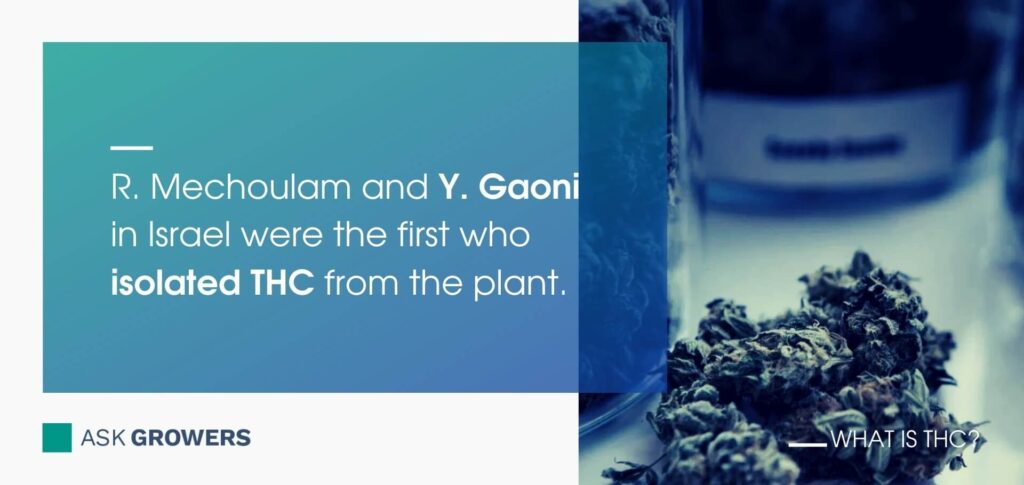
In simple terms, endocannabinoids are very similar to THC (and vice versa) that can be extracted from cannabis. Tetrahydrocannabinol affects both types of receptors (CB1 and CB2), i.e., it affects both receptors in the brain and in the body.
In part, the discovery of endocannabinoids became one of the reasons why the legalization of this plant became so important so hotly debated. The proponents use this as proof of the value of marijuana and its usefulness for the human body. The opponents, in turn, argue that THC is psychoactive and this proves that it is a drug.
By the way, 8 years ago, scientists found a way to cultivate yeast that produces THC, which is much cheaper than tetrahydrocannabinol extracted from the cannabis plant. Nevertheless, now, in 2023, cannabis is still the most popular source of the most famous psychoactive compound.
THC Effects and How It Gets People High?
So, as we have already mentioned, this compound affects the human brain and CNS in a certain way just because we have a receptor that responds to cannabinoids. The effects tetrahydrocannabinol produces are the short-term ones and the range of things a consumer can feel after he eats/smokes/drinks something THC-dominant is really wide. Not all people experience the same effects. Furthermore, there is no guarantee that you will feel anything at all, at least at the very first time of consuming THC-dominant products.
For instance, some respondents claim that tetrahydrocannabinol makes them feel very relaxed, calm, and peaceful. Others, however, note that the same products with a high level of THC make them feel much more anxious than usual. What it depends on?
It depends on the body chemistry, the product you consume, the concentration of tetrahydrocannabinol, the level of CBD, and plenty of other factors. Nevertheless, there are some common effects that are usually expected from cannabis products with a relatively high level of THC.
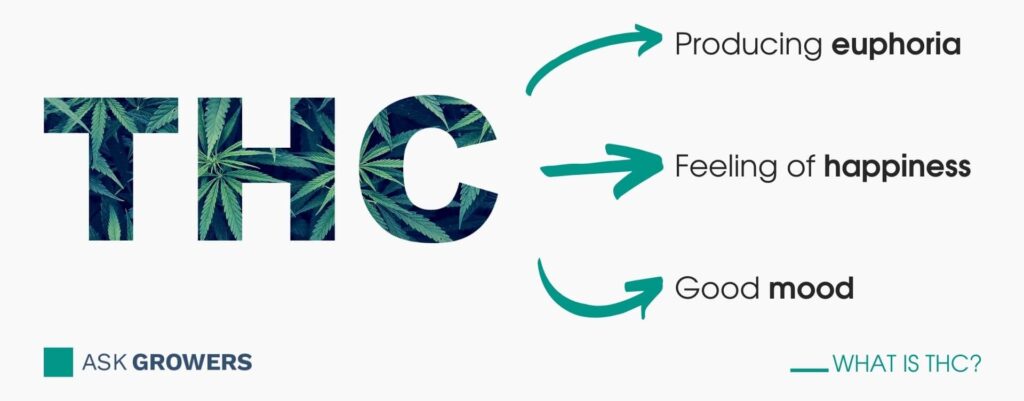 Positive effects are as follows:
Positive effects are as follows:
- Euphoria
- Sedation
- Relaxation
- Energy
- Pain relief
- Laughter, good mood
The most common negative effects are as follows:
- Short-term memory losses
- Drowsiness
- Dizziness
- Anxiety and/or paranoia
The so-called “neutral” effects are as follows:
- Hunger
- Slow perception of time
- Increased heart rate
- Dry mouth, red eyes
Read Also: What Are Synthetic Cannabinoids and Synthetic Marijuana
Can THC Be Used for Medical Purposes?
Unlike its “close relative” CBD, THC is mostly associated with high and recreational use of the cannabis plant. Although it is also used for medical purposes. Let us take a look at the things that make it effective not only when it comes to regular stress but also when it comes to the treatment of serious illnesses.
Natural Anti-Inflammatory
And again, just like cannabidiol that is frequently used in the beauty industry and medicine as the powerful and non-allergic anti-inflammatory, tetrahydrocannabinol can be used for reducing inflammation. That is the main reason why people suffering from a wide range of illnesses from arthritis to multiple sclerosis use cannabis products.
THC As Cancer Treatment
First of all, we must know that currently, scientists are working hard on indicating the proof of its efficacy against cancer. We emphasize this because we do not want our readers to overstate the efficiency of this compound when it comes to cancer, but we cannot also deny that a lot of people note that it can be one of the reasons why they felt significantly better. It is no secret that doctors often prescribe it to patients who are undergoing chemotherapy, but we do not really know anything about it cancer-killing or cancer-preventing properties. Maybe, we will learn more about them in a few years or decades.
In short, THC definitely helps people fighting with cancer during chemotherapy due to its anti-inflammatory and analgesic properties, but we do not know if it helps to treat or prevent cancer.
Nervous System Diseases and Mood Disorders
Some people think that it is nothing but a myth, but the cannabis plant, in particular, its THC compound really helps people with posttraumatic stress disorders, as well as people suffering from depression, anxiety, and other mood disorders.
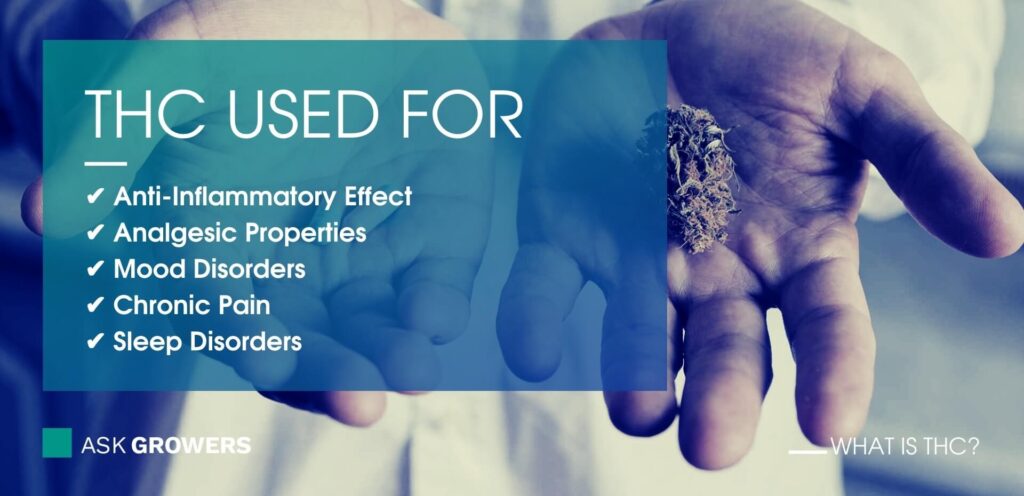
It is also considered that tetrahydrocannabinol helps people with attention deficit hyperactivity disorder. Moreover, cannabis is also often used to treat schizophrenia and Alzheimer’s diseases.
THC for Chronic & Neuropathic Pain Relief
Cannabis is used for relieving pain because both of its basic chemical compounds, tetrahydrocannabinol, and cannabidiol are known for their anesthetic properties. Moreover, they are used as the key ingredients of various topicals, such as creams, lotions, massage oils, etc., and that, in turn, shows that they can relieve pain locally, even without going to the bloodstream. Cannabis, in particular, THC-dominant strains are frequently consumed by people suffering from chronic pain as the result of arthritis, migraines, and other serious illnesses.
Read Also: What You Need to Know About the New Tetrahydrocannabinol Delta-10
Sleep Disturbances
As we have already mentioned, THC can produce different, and even mutually exclusive effects, for example, it can make someone feel energetic, cause laughter and make another person feel calm and relaxed. However, certain strains (usually Indica strains) are often used to treat insomnia because in most cases, it relaxed the body, as well as mind.
Eating Disorders & Gastrointestinal Distress
THC and cannabis at large are frequently used to treat various eating disorders, but more importantly, it is also used to treat gastrointestinal diseases’ symptoms. As was mentioned above, tetrahydrocannabinol relieves pain, reduces inflammation, and also reduces nausea, and that is the reason why THC-dominant strains are often consumed by people suffering from Crohn’s disease, and IBS.
In general, though THC is no panacea to all diseases, it helps to relieve the symptoms of various diseases and disorders, including PTSD, pain, sleep disturbances, nausea, inflammation processes, arthritis, glaucoma, severe headache, cancer, Alzheimer’s, Crohn’s, loss of appetite, sclerosis, and fibromyalgia. Maybe, further cannabis research will help indicate other medical properties of cannabis and it will be used to treat more diseases pretty soon.
Finest high THC seeds for home growing
Ways of Consuming THC
Most people associate cannabis with smoking. However, there are plenty of other ways of consuming THC.
We want to emphasize that THC is still illegal at the federal level. Still, there are states that have already made it legal, and the number of such states is expected to grow year by year. Moreover, the situation in the states where it is legal allows understanding what the market of cannabis products will be like after the government adopts new the law. Currently, the following THC products are available on the market.
THC Oil
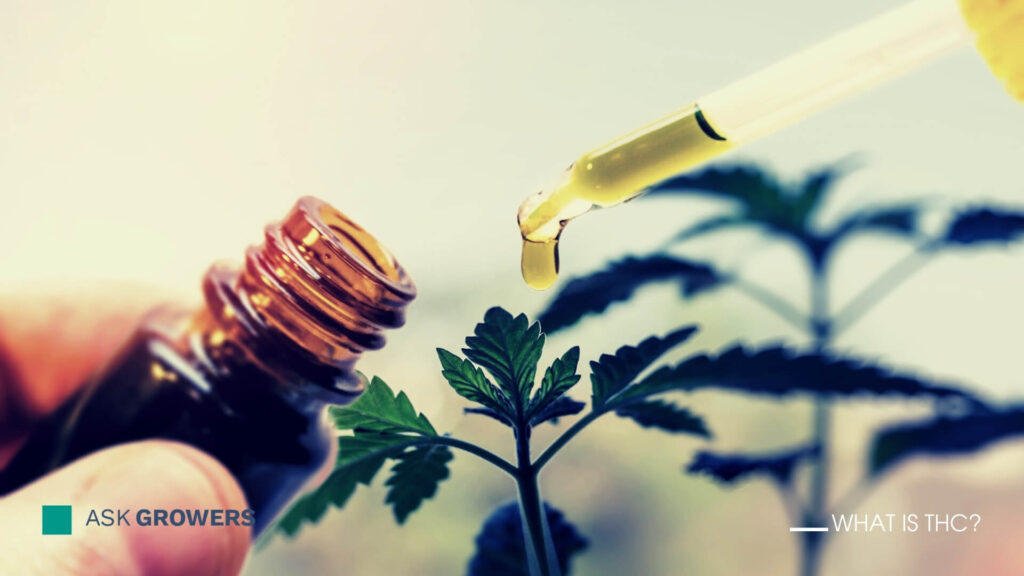
THC oil is the cannabis extract containing the highest level of tetrahydrocannabinol. The concentration is up to 90%. It can be added to sweets, honey, used as the ingredient when cooking homemade edibles, mixed with tobacco. This oil is too concentrated to consume as a separate product.
THC Pills
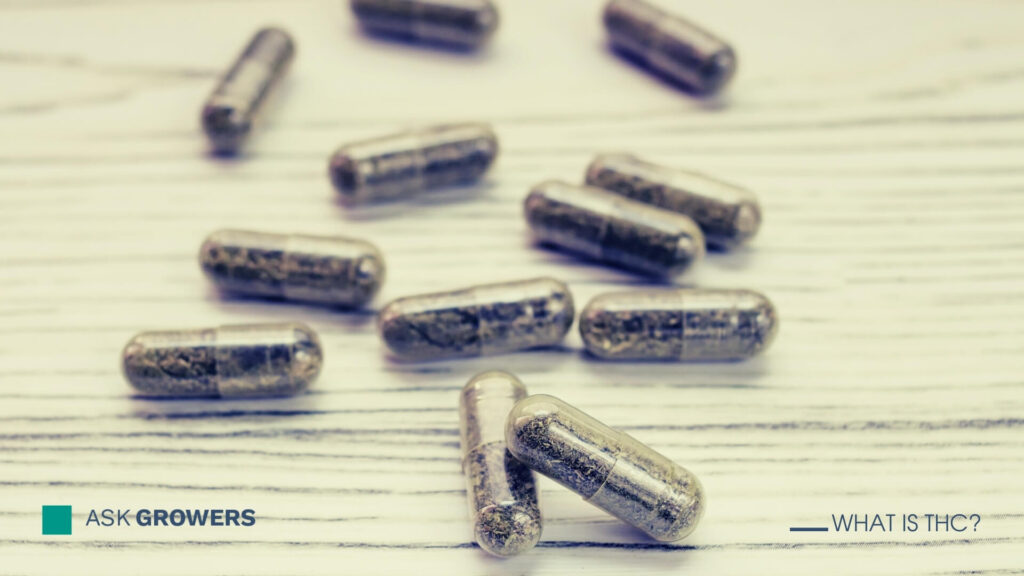
These are the pills infused with THC. Generally speaking, there are two kinds of such pills. The first one includes pills filled with oil. They can be found in dispensaries – such capsules are really effective when it comes to therapeutic affect people suffering from cancer or AIDS need.
The second kind includes pills with dronabinol, the THC made in the laboratory (we mentioned this unique discovery above.) Its major benefit is more important than it seems – it is not extracted from the cannabis plant, consequently, it is not illegal to produce, distribute and sell its consumers.
THC Wax
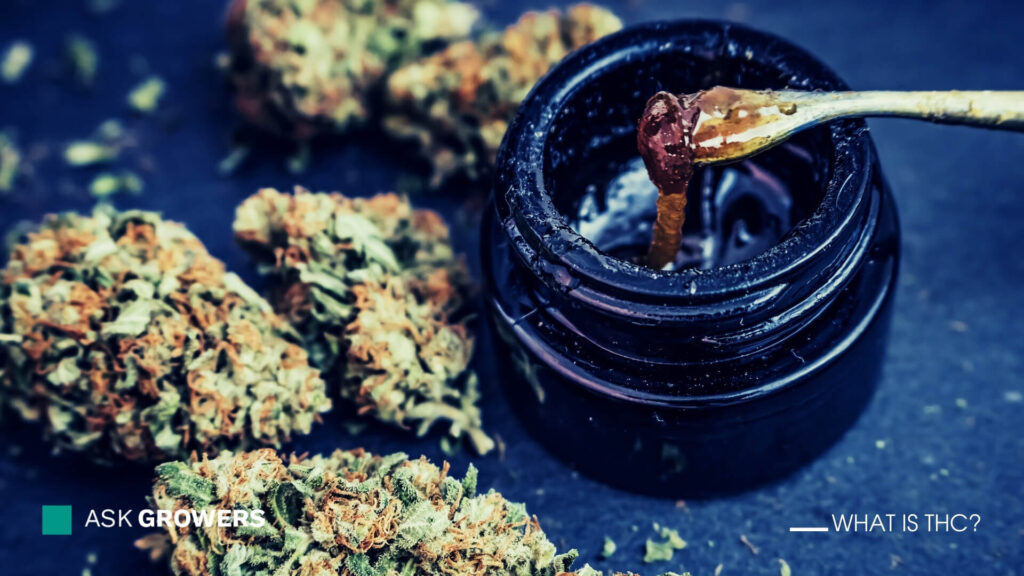
THC wax is the concentrate that is gradually becoming more and more popular because of its higher THC potency. There are strains with a pretty high level of THC, for instance, with 30% of tetrahydrocannabinol, but the wax has a concentration of 90%. Dabbing and vaping are the ways to use this product, but if you are not an experienced consumer, be careful. Tetrahydrocannabinol is the psychoactive cannabis compound, and though there is no recorded death from its use, the consequences of overdose may be really unpleasant.
THC Edibles
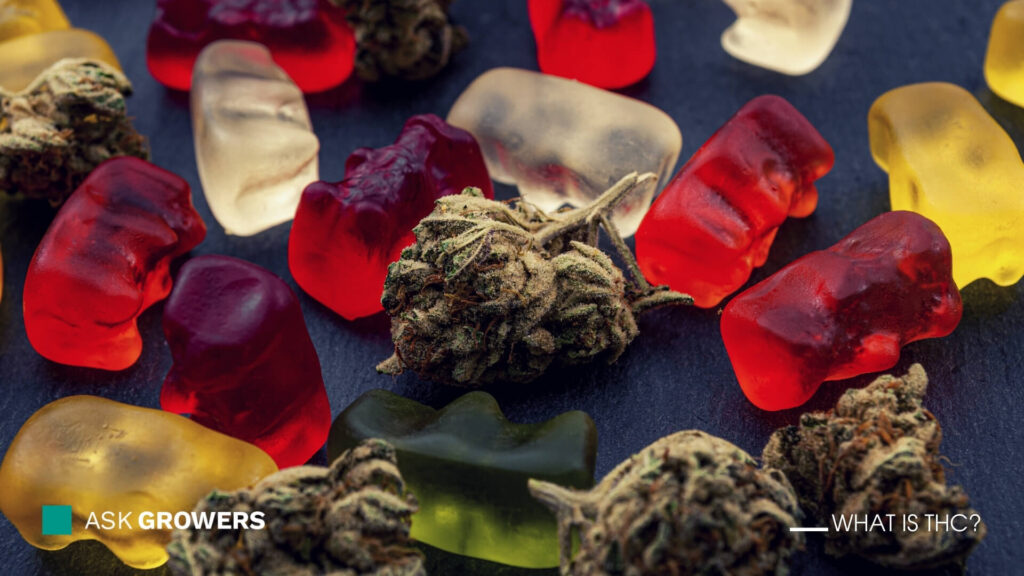
THC gummies and cookies are strongly associated with this plant and no wonder. Eating edibles is an easy and tasty way to consume cannabis (which has a strong flavor that very few people like) and enjoy the long-lasting effects. Edibles with a high concentration of THC are usually used by people who want to have some fun or relax this evening, as by people who need something effective to reduce the symptoms of a disease.
Read Also: Full Guide On Cannabis Edibles
Vape Oils, THC Cartridges
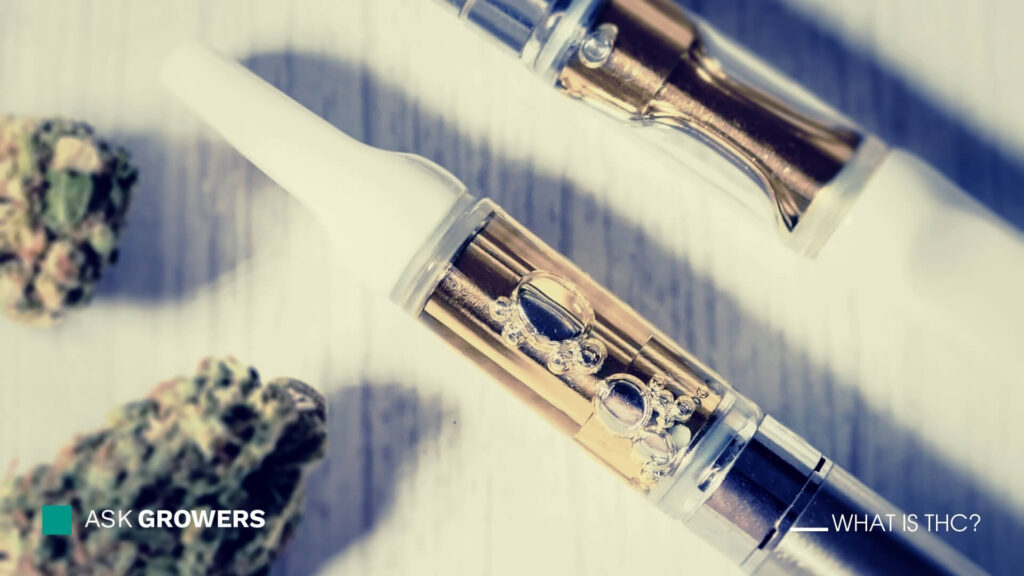
Vaping THC is another popular way to consume marijuana. It is similar to smoking, but there is no burning. Some think that it is a huge benefit of buying a vape device and using it to consume cannabis, but it is not exactly true. The thing you get the larger dose – smoking THC is impossible without burning a certain amount of weed, and nothing is burned when you use a vaporizer. So, you can get more than you really need. If you are an experienced consumer, you can enjoy vaping as often as you want – all you need is THC oil or THC cartridges depending on the device you use.
THC Diamonds
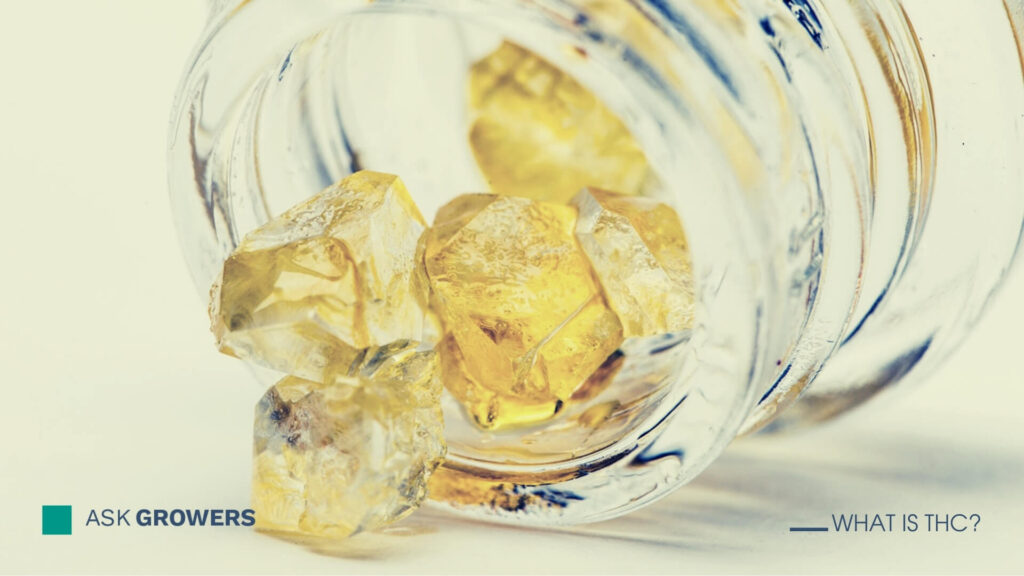
THC diamonds are concentrates like wax, and like wax, they can be very different. Still, they all look like little gems and contain 99% THC-A (a type of tetrahydrocannabinol that does not get you high.) Their consistency, colors, uses, effects, and potency vary and depend on plenty of factors.
Most Popular Questions About THC
As you can see, there are a lot of ways to consume THC. Moreover, there are a lot of effects it produces. No wonder that modern science does not know this much about it – though we live in the technical world, we do not know enough to identify all properties of this unique chemical compound.
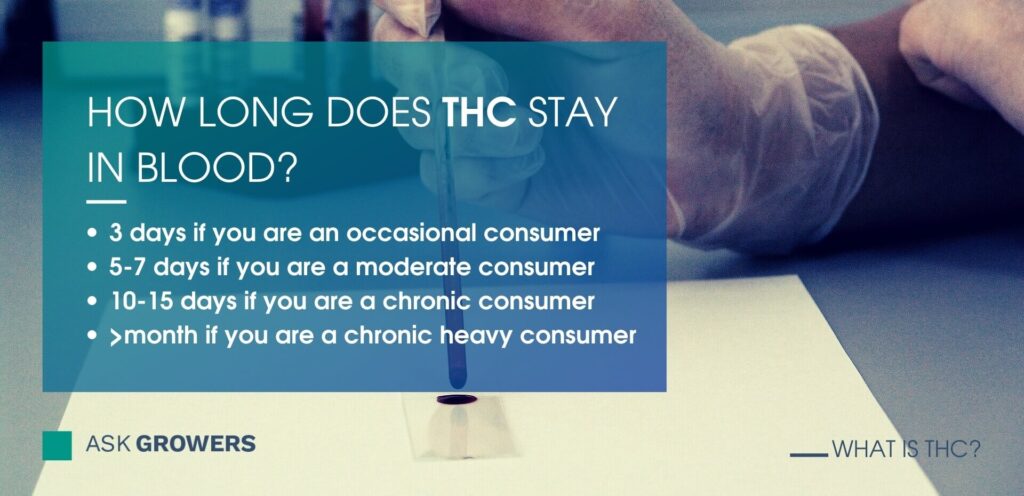
Currently, this is a matter of interest to the public, and more and more people start to ask questions about it.
We decided to answer the most popular of them:
- How much THC is in weed? It depends only on the weed you choose because the level of THC can be very different. For example, in the 60s, in the times of hippies, the average THC percentage was 4-5%. Today, it is 10-12% (please note that this is the average percentage). You can even buy the THC-dominant
- How long does THC stay in blood? Marijuana is detectable for 1-2 days but in some cases, it can be detected after more than 20 days after consumption. The more THC you consume and the more often you do it the bigger the chance that it can be detected.
- How long does THC stay in urine? It depends on how much and how often you consume it. For example, weed is detectable in urine for 3 days if you are an occasional consumer, for 5-7 days if you are a moderate consumer, for 10-15 days if you are a chronic consumer, and for more than a month if you are a chronic heavy consumer.
- How to get THC out of your system? Detox naturally – exercise, choose a healthy diet, and drink a lot of water if you have time. If you have only a week or less, choose detox products. If you have a day or less, try cleansers.
- Is THC overdose possible? People who consume too much THC may feel worse. The most common symptoms are vomiting, anxiety, or even paranoia, increased heart rate. However, it has never been fatal to anyone.
- Does CBD oil contain THC? Yes, it can contain THC if it is the full-spectrum CBD oil. However, in most cases, the percentage is just 0.3% of tetrahydrocannabinol or less – this is the max concentration prescribed by federal law.
Final Thoughts
THC, also known as tetrahydrocannabinol, or more precisely, delta-9-tetrahydrocannabinol (there are some other types of this compound that do not get you high) is one of two most famous cannabis compounds. Unlike CBD, its “close relative”, it affects the brain, too, making us feel the euphoria or relaxation or/and plenty of other things that make cannabis so popular. Let us focus on the most important things we have learned about it once again:
- This is the chemical compound produced by the cannabis plant.
- It affects both types of receptors, CB1 and CB2, and has an impact on the human body as well as on the human brain.
- It has never been fatal to anyone but it can produce some negative or side effects like anxiety and increased heart rate or even vomiting (if the doze is really large.)
- Its typical positive effects are euphoria, relaxation, laughter, and a feeling of happiness.
- It helps to treat various diseases and plenty of symptoms from pain (for example, migraines) to schizophrenia and Alzheimer’s.
- Its concentration matters – 10-15% is the average level of THC, 15-20% is the high level of THC.
- There are plenty of ways to consume THC weed from vaping to eating edibles.
As you can see, though it is not the easiest topic to discuss, it is no rocket science. THC benefits are obvious, and anyone can use them if he knows enough about his compound.
Read Also: CBC Cannabinoid (Cannabichromene): Benefits, Effects, Legal Status

 Guides
Guides
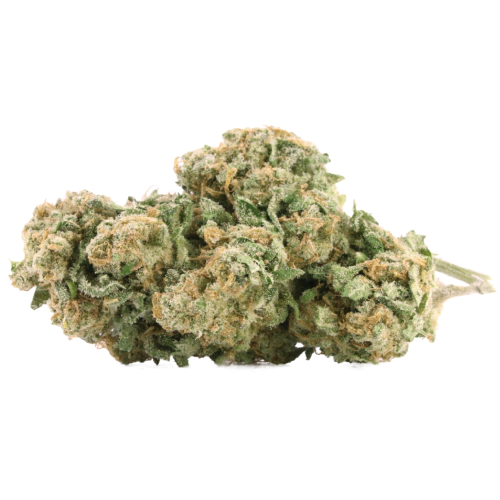
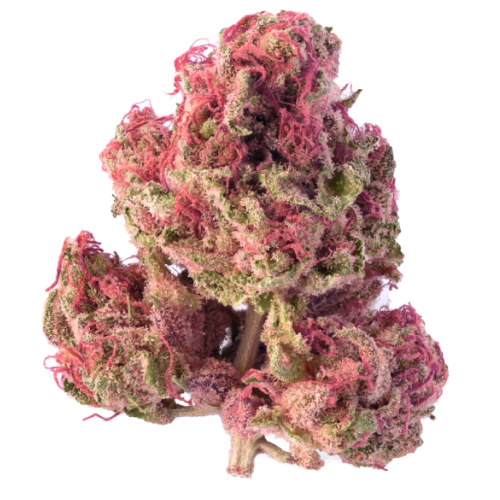
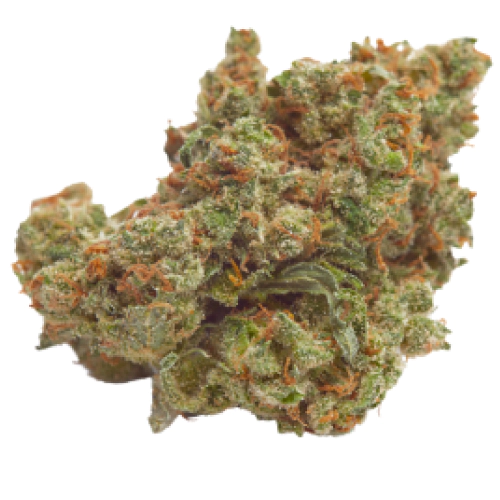
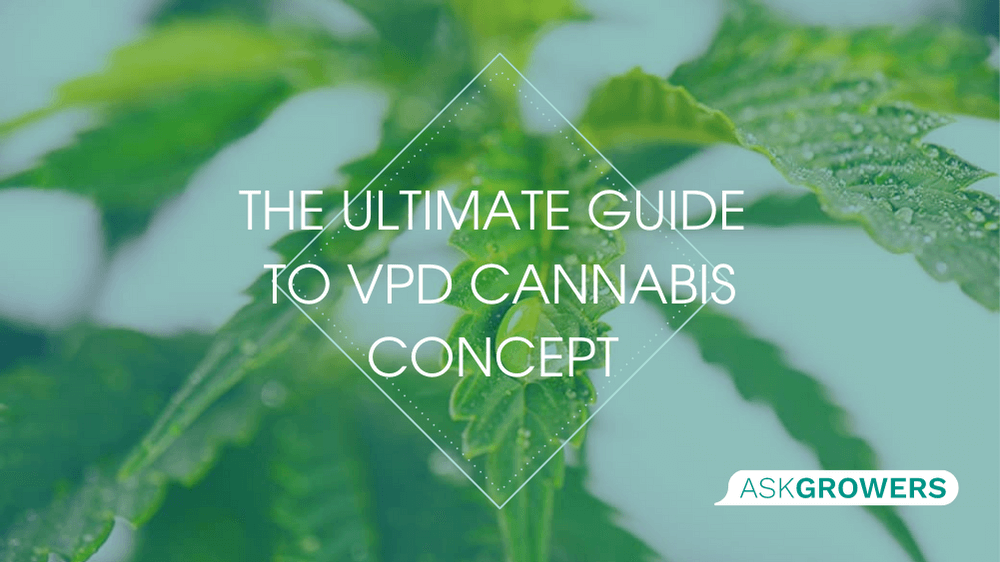
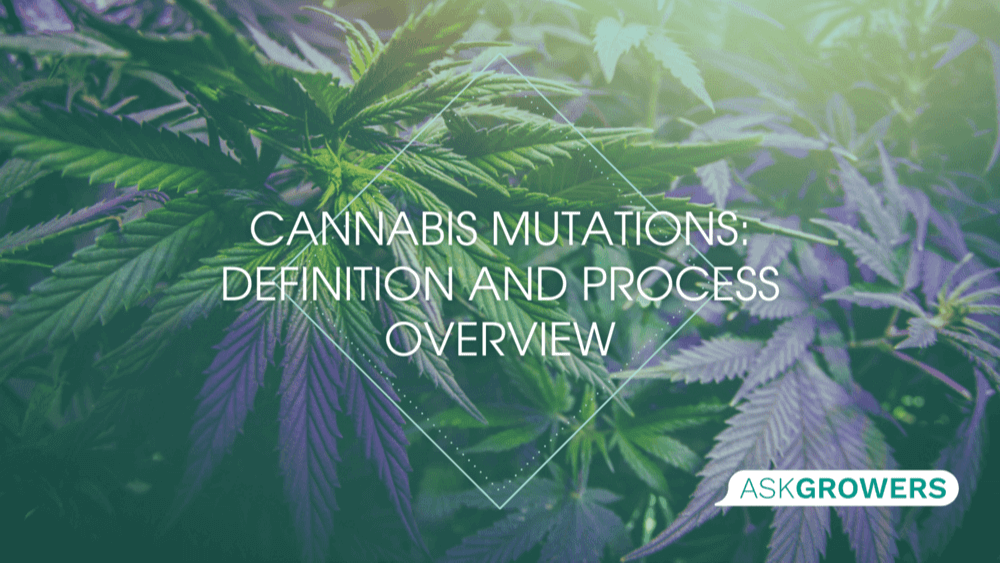
.png)
.png)
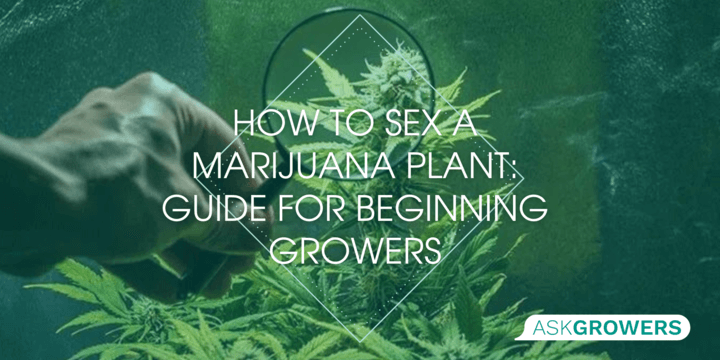
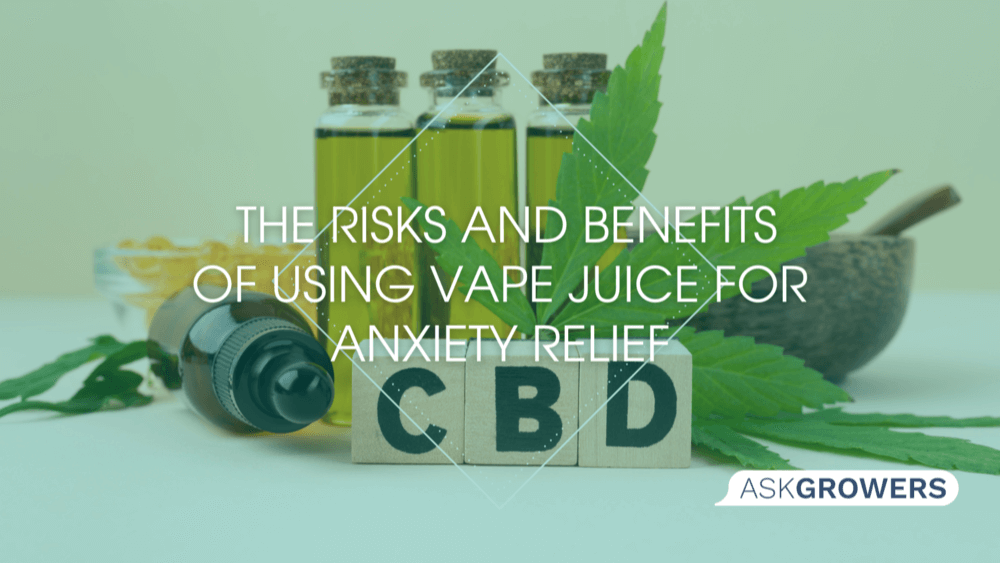
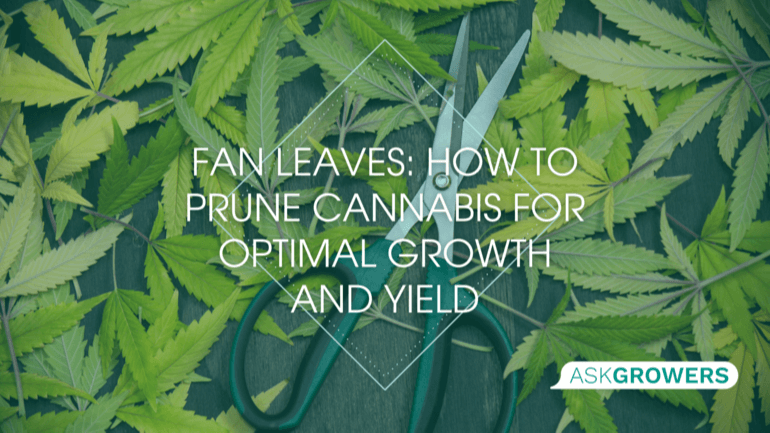
 (1).png)
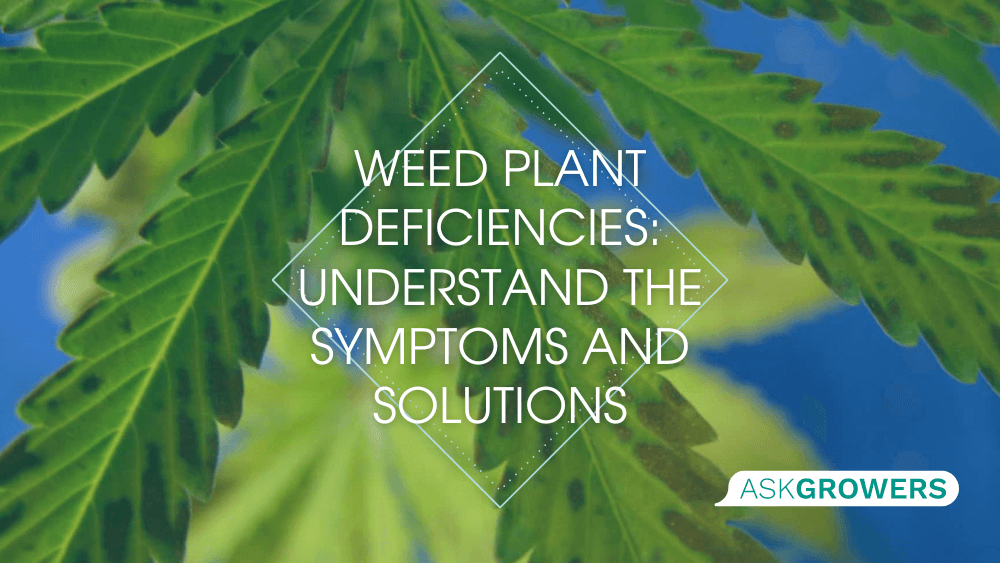
.jpg)

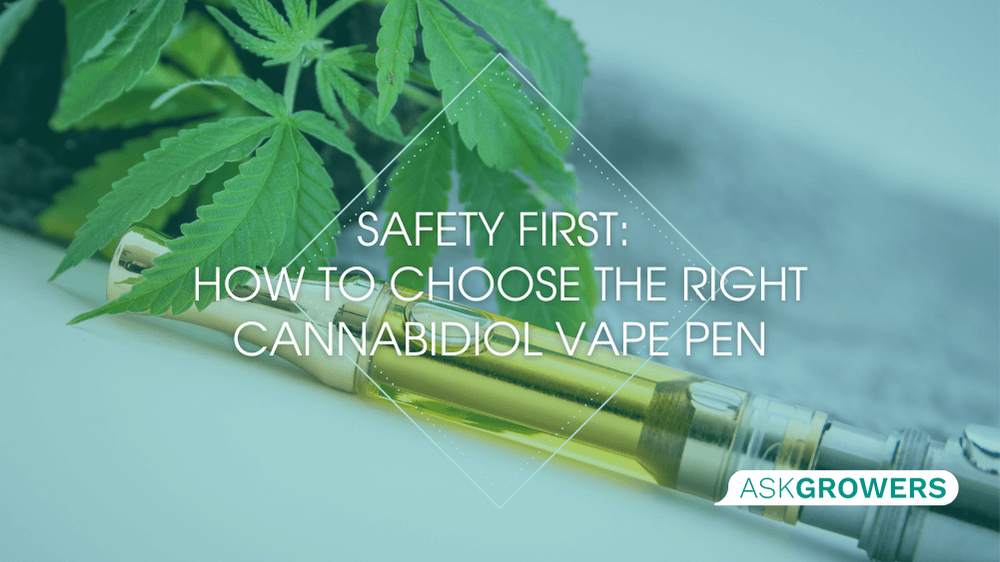
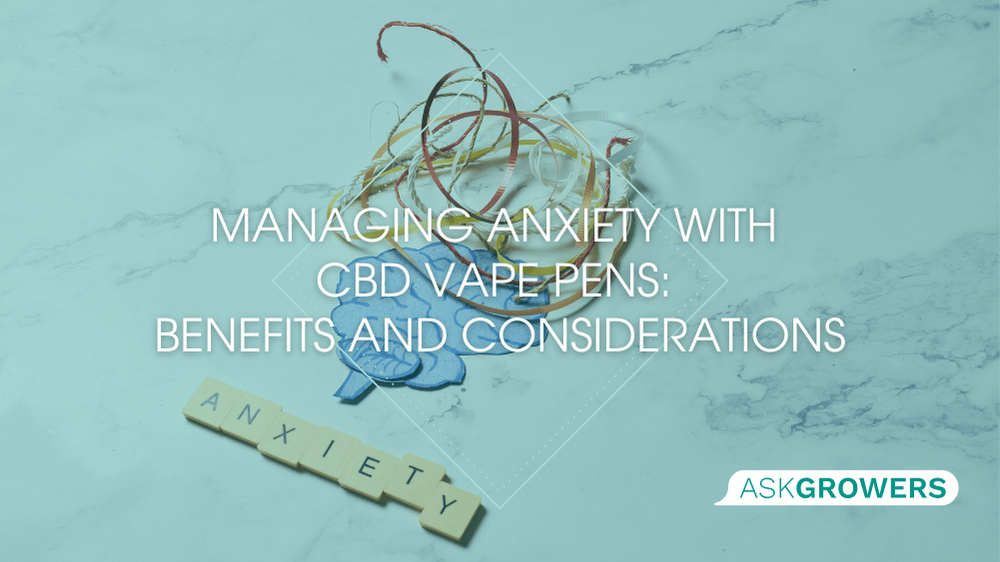
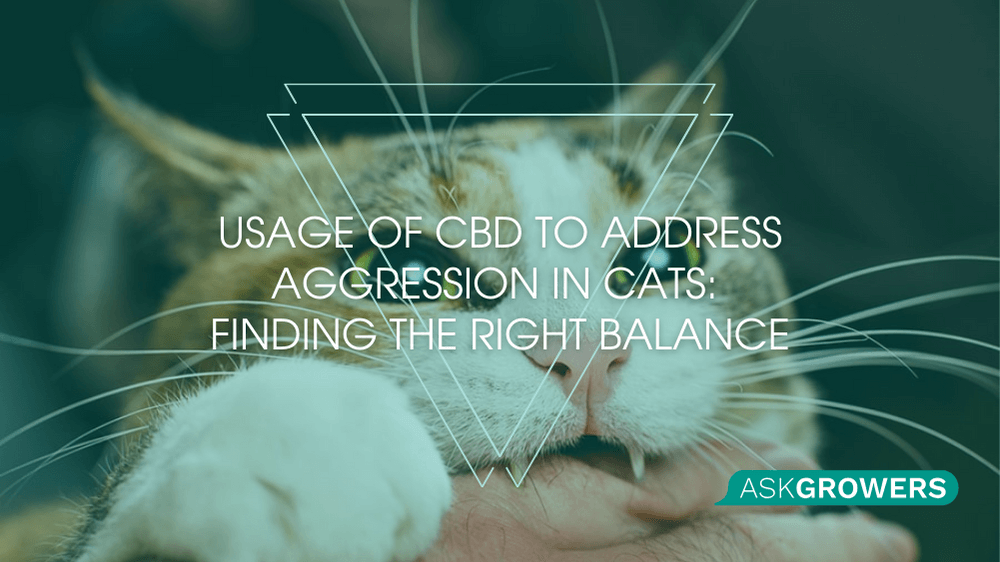

Be the first and share your opinion
Write a Review